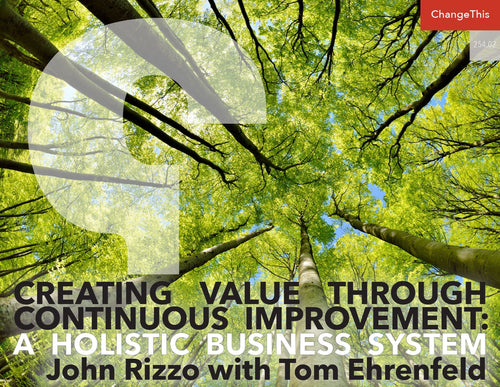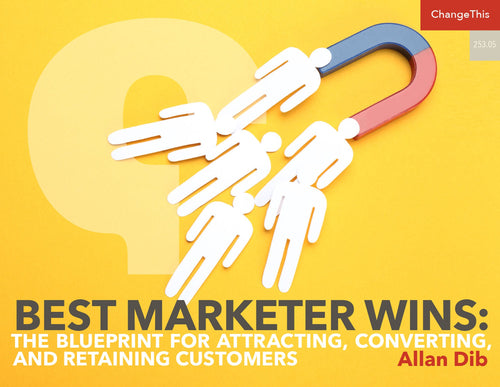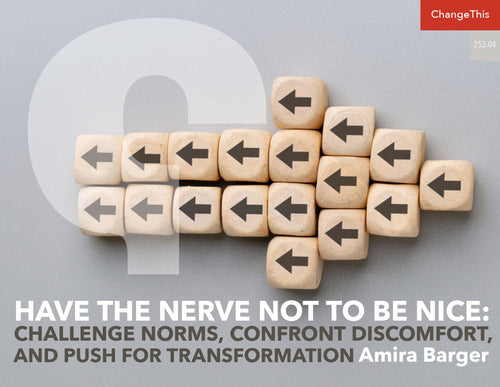Make Your Experts Your Leaders
Expertise isn’t a consumer good you can buy off the shelf; nor is it something that is acquired once you hold an MBA certificate in your hand – it takes time and tenacity.
People often point to robots, artificial intelligence, and other emerging technologies as the future of business. Yet, organizations also have much to gain by making one simple but profound adjustment: cultivating talented leaders with deep industry expertise and then training them with the requisite management and leadership skills.
Such a transformation promises to make our workplaces happier and more productive, our politicians and corporate brands more respected, and our private companies and public sector more innovative, dynamic, and robust.
The evidence underlying the principles of expert leadership clearly shows that organizations led by specialists in the core business perform better than those that are not. And this has been found to be the case across all types of businesses.
But how do expert leaders achieve organizational performance? What are the mechanisms through which they influence those around them? And what is the nature of the deep expert knowledge that brings intuition and perspective to decision-making?
To clarify, the core business is the primary or underlying activity or purpose of an organization. The core business of a high school is to educate students. As the world’s largest seller of smartphones, South Korean firm Samsung’s core business is electronics. For Tottenham Hotspur FC, it is to win football championships.
Teachers in schools, lawyers in law firms, journalists in newspapers, carers in care homes are all core workers, without whom their organization simply could not function. Core business experts should be running the organization, be present at board level and in middle management.
Other non-core functional areas such as HR, IT, and finance should also be led by experts in each of these domains, supported by adequate knowledge about the industry and the business. But ultimately they exist to support the core business, not dictate its direction. It would be unwise to put a marketing expert at the top of a tech company, as Apple discovered to their cost.
“But what about when X led Y...?” I can hear you say. There will always be outliers, but the expert leader pattern is based on a great many studies. The empirical evidence is reliable and generalizable to many different work settings.
ACQUIRING EXPERT KNOWLEDGE
Perhaps you remember the gripping true story of the so-called Miracle on the Hudson where a veteran airline captain managed to set his engineless passenger plane safely down on the river. The pilot, Chesley Sullenberger, known as Sully, encountered a situation that was not in the books: both his engines hit a flock of geese at low altitude after taking off from New York en route to North Carolina.
The US Airways flight emergency manual did not have a checklist for the loss of both engines in a fully laden Airbus A320 at low altitude over a densely populated area. Sully evaluated his options in real time, with no power to his aircraft and with huge numbers of passengers in his charge in what had become the world’s most frightening glider. He could either return to LaGuardia, divert to Teterboro Airport in New Jersey, or attempt a water landing on the Hudson River.
All options in principle were impossible. The plane did not have the power to reach either airport. Landing the huge Airbus on the river was extremely risky at best, perhaps insane, but there was no other choice. It seemed inevitable that enormous numbers of people on the plane would perish.
They didn’t.
Deep expertise saved them.
To say that Sully was an expert in the core business of flying would be an understatement. As a boy he had constructed model aeroplanes. He had graduated with a BSc from the US Air Force Academy, and while still training had been awarded the Outstanding Cadet in Airmanship award. He had flown Phantom jets in the US Air Force at speeds you and I can barely comprehend, and clocked up decades of flying in military and commercial service. He was an experienced glider pilot and had served on accident investigations. Perhaps it even did no harm that he was a member of Mensa, the society for high-IQ individuals, when young.
Sully had to decide, instantly and under the most extreme pressure, what to do about a situation for which there were no rules and—this is important—no training. Deep intuition took over in that crisis moment. His words, spoken later, are instructive:
“For 42 years I’ve been making small regular deposits in... [a] bank of experience... On January 15, 2009, the balance was sufficient... [that] I could make a very large withdrawal.”
Experience cannot be taught. It comes from a process of trial, error, practice, learn, trial, error, practice, learn. Experience builds profound intuition, whether one is in charge of a large organization or an aeroplane full of passengers.
The concept of “expert knowledge” is very old and was originally used in engineering and the natural sciences. It not only involves a deep understanding of the core business: when a leader has expert knowledge, decision-making is informed by hard-earned expertise, by intuition, domain knowledge and experience, and years of practice and patience. It combines explicit knowledge from formal learning with tacit knowledge from experience and wisdom, and it profoundly influences how the person who has it perceives the world.
Expertise is not an on/off mechanism. Nor can expertise be acquired by reading about what others did. It is absorbed through doing and dealing with the same or similar situations multiple times. It is what a probation officer with decades of experience working with ex-offenders calls on when he is trying to anticipate how those in his care might behave.
Experts differ from non-experts in a number of ways. Their knowledge is represented and bundled differently in the brain; and they tend to think more holistically about problems, for example to step back and think about how a small snag might be caused by a bigger problem. A combination of both explicit and tacit knowledge is essential to those who become leaders and managers. It influences decision-making and, therefore, performance.
Expert knowledge is tied to the core business of an organization. Consider the ability in the core activity. Is the person being promoted into a line management position good at the primary role? Could the engineer who is now my boss do my job and to a high standard? This is particularly important for line managers.
If people are promoted to manage others because they can talk-the-talk to the senior executives, or no one knows what else to do with them, it can have a negative effect both on the people they manage and for the business as a whole. Yet it is not uncommon.
As research on university leaders and heads of departments shows, using data spanning ten and fifteen years respectively, those heads who were the least successful scholars in the first part of their career went on to become the least successful leaders. Their universities and departments performed poorly compared with institutions led by good or outstanding scholars.
The evidence is clear: to achieve high-performance you must train and develop your best experts into leaders.
Adapted from Credible : The Power of Expert Leaders. Copyright © 2023 by Amanda Goodall.











































